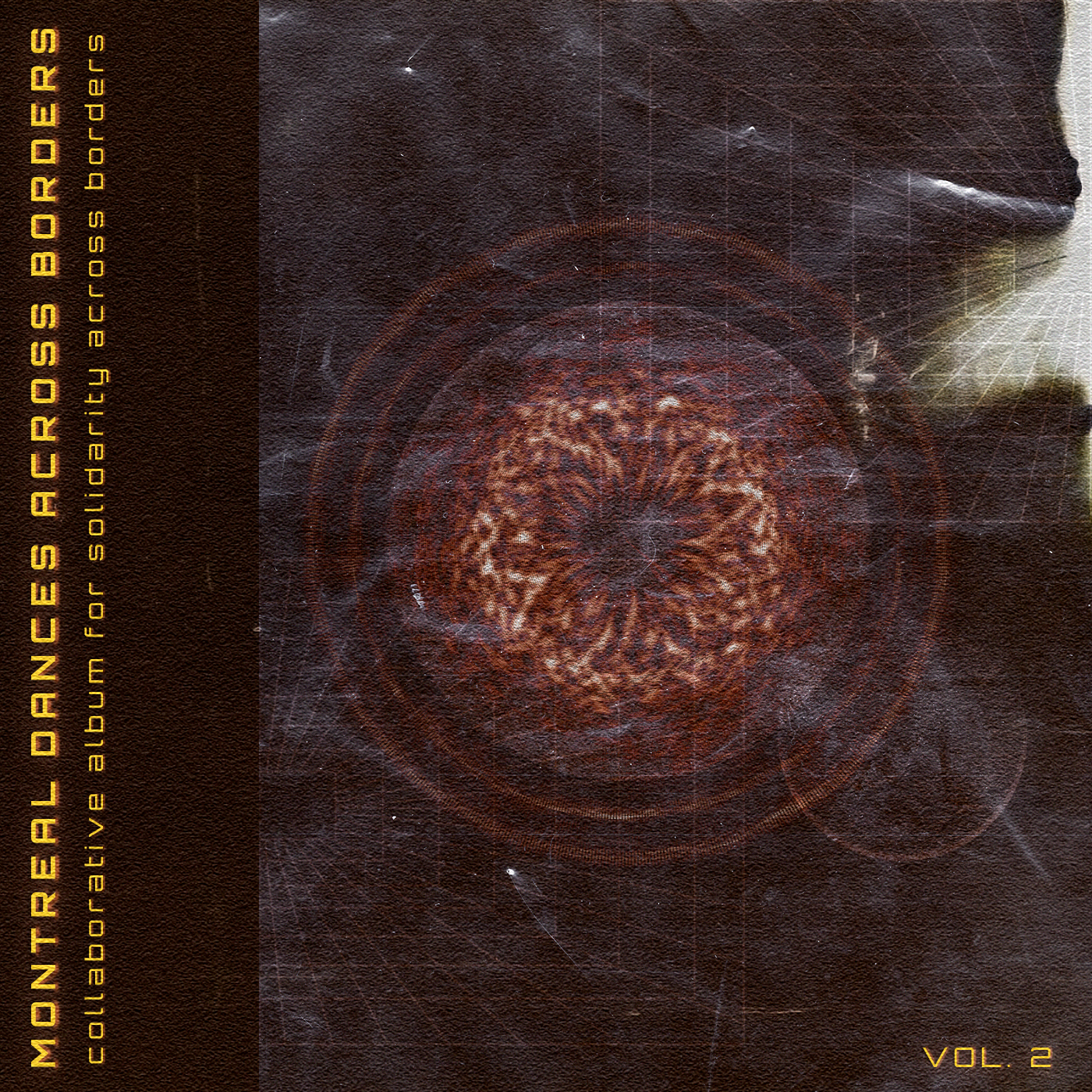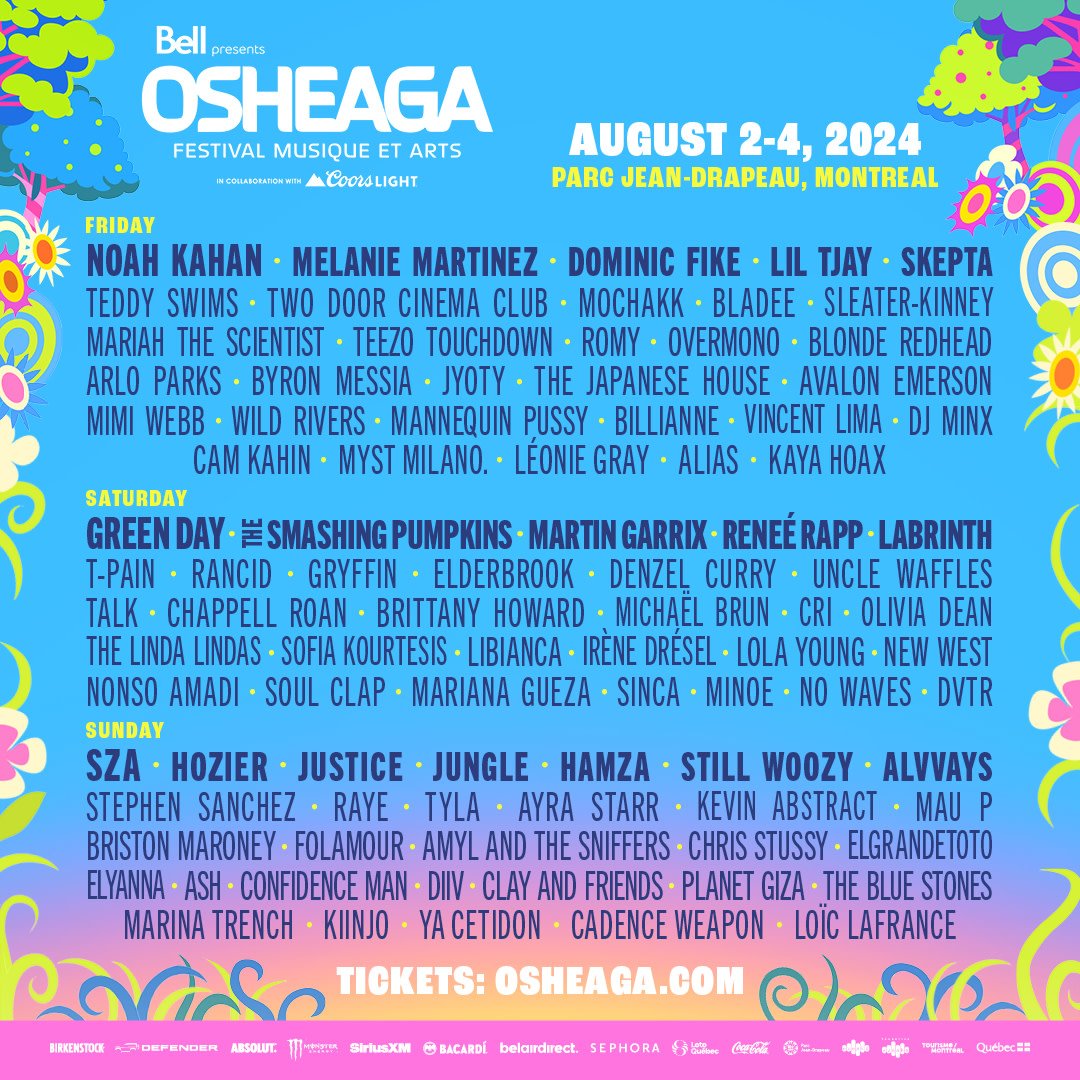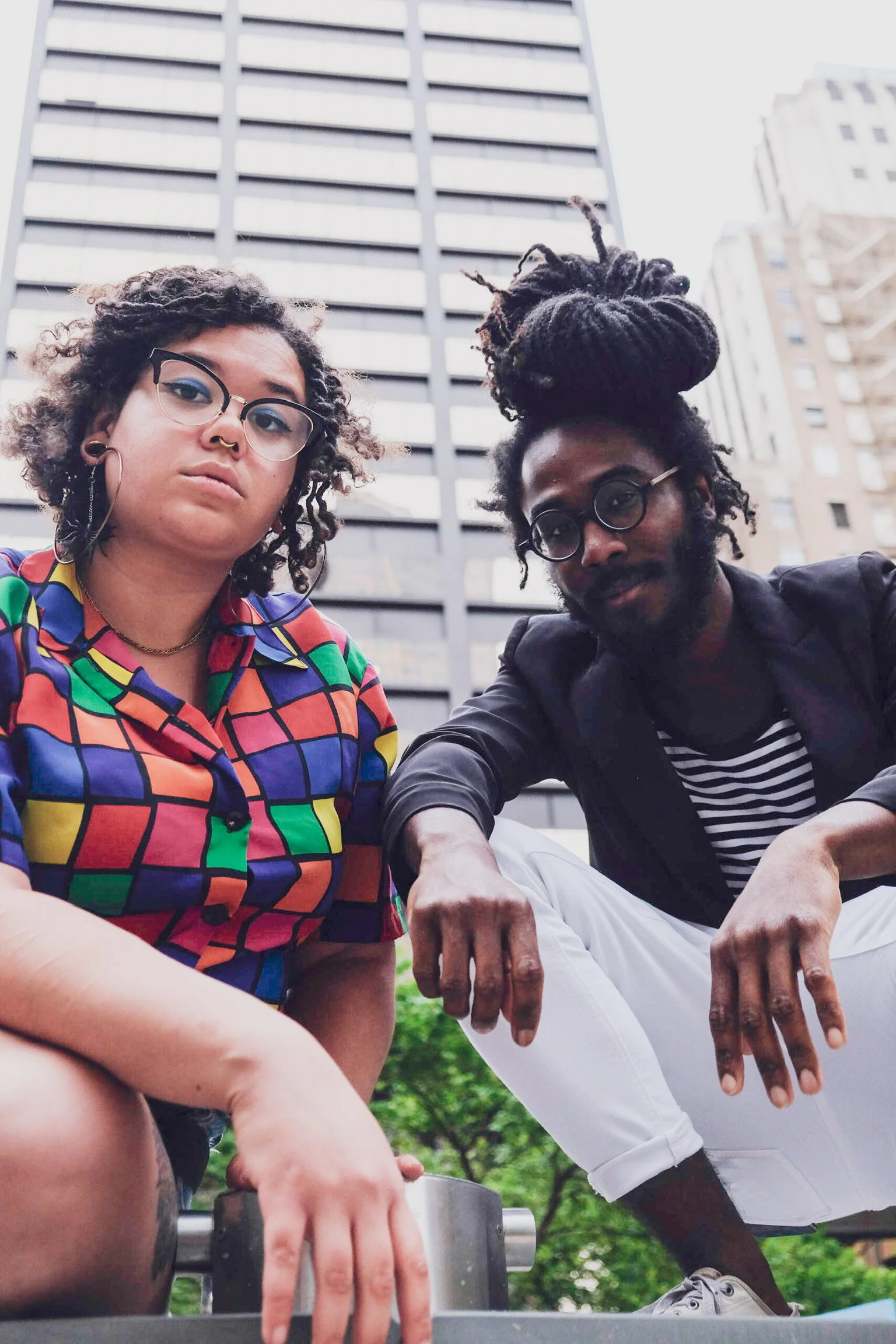Jean Grünewald Discusses Montreal Dances Across Borders' New Compilation "Volume 2"
Volume 2 album art courtesy by Thomas Lopez and Elisa Gleize
On September 28th, 2021, Montreal Dances Across Borders followed-up their 2020 project Volume 1 with another exciting compilation project: Volume 2. This anticipated release from the Montreal collective brings together 10 incredible electronic artists for a more-than-worthy cause; with 100% of Bandcamp going to Solidarity Across Borders, a Montreal-based migrant support network working to combat the unjust realities faced by immigrants and refugees.
While the compilation’s sound is experimental and eclectic, the participants’ unanimous support for the project’s cause acts as a base for it’s overall sonic unity. Despite its variety, each track inspires dance, movement and energy.
Volume 2 features tracks from: HRT, LE SERVICE HUMAIN, PULSUM, AN_NA - Red Wine, s.talbot, HUMAN JUNGLE, Inside Blur, K-10, Remote Access and DBY. It was curated by Jean Grünewald and Louis Paulhus with artwork by Thomas Lopez and Elisa Gleize. The entire project was mastered by Elliott Sebag.
Volume 2 album art courtesy by Thomas Lopez and Elisa Gleize
Jean (AKA ottoman.grüw), one-half of the curatorial duo behind the project, spoke with me about challenging borders in a multitude of ways.
Simone Tissenbaum for Also Cool Mag: I read in a summary you wrote about the project that music embodied in spaces is inherently political… What does that mean specifically for Montreal Dances Across Borders?
Jean Grünewald: The project was created to remind us that [dance] music, embodied in spaces, is above all political. The idea of ‘dancing across borders’ relates specifically to this kind of music. Underground dance and techno music survives the shared cultural knowledge of marginalized groups that is ongoingly threatened by systemic oppression. The spaces where this music is played, whether it’s a warehouse or a club, allow for moments of togetherness... Moments where you can acknowledge and celebrate different realities. The hope is that this can create more empathy, solidarity and respect between different people.
Also Cool: I understand that the music itself is political, and clearly the spaces in which that music is shared become political as well. What does that mean for digital spaces? How is it the same, or different, when we’re talking about this type of music being experienced in a digital sphere?
Jean Grünewald: There’s a paradox in the way that digital releases are connecting but also fragmenting. If there was a pandemic in an era without digital networks, there would have been no compilation at all. This is certainly connected to the idea of borders, dancing across borders, getting rid of the borders… It’s something that digital methods do.
AC: I’m curious then, not to be harsh on the digital realm, but to consider what might be lost inside of it. Obviously there is a connecting factor, but what is being lost right now in a world where live music and shows and events are harder to come by?
JG: With less [in-person] events, I’m wondering how much our feelings of togetherness and empathy are fed. Because when you’re going to a show, whatever it may be, you have people close to you. If they’re reacting in a certain way... you hear that, you see that. Even though you’ve never seen these people before, spoken to them, and may never see them again, there is a connection that is made. You’re testifying the existence of those other people at this specific moment, while you’re also testifying of your own existence.
AC: Is this project designed to address the lack of connectedness you think we’re collectively experiencing?
JG: Maybe [this compilation] is not a whole solution, but it’s an attempt at remedying the situation. In the same way that it’s directly connecting the artists involved, it’s indirectly connecting the people that are listening to the compilation, with listening to the album acting as a shared experience.
- - -
With such thoughtful and politically-engaged creation and curation, you can expect nothing less than a moving piece of work, both physically and emotionally.
The project is available on Bandcamp in a PWYC format with all proceeds being directed to Solidarity Across Borders.
Montreal Dances Across Borders
Simone Tissenbaum is a Montreal-based dancer, educator, and writer.


































